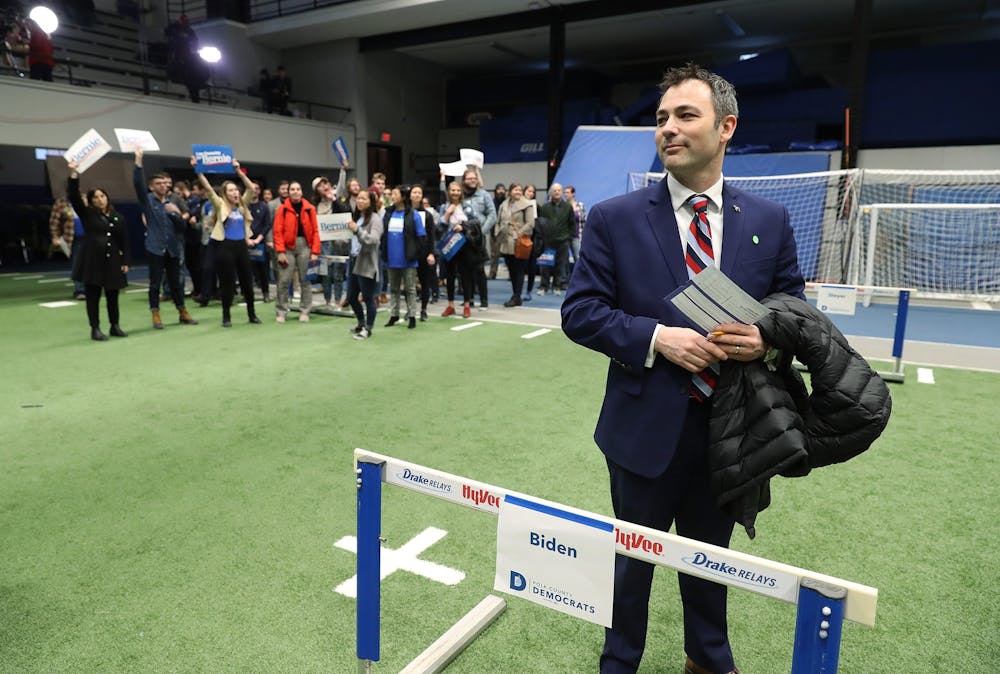What was supposed to be a loud bang was actually a soft fizzle on Monday as Iowa's caucuses ended with more questions than answers. The caucuses, which have accurately predicted the overall primary winner in 7 of the past 9 contested presidential nominations, have been regarded as a make-or-break night for candidates for decades.
The Iowa Democratic Party faced nationwide exasperation Monday night when it announced it could not release results due to "app coding errors". Used to tabulate caucus votes, the app was plagued with outages and user mistakes, and only partial data was transmitted. The app developer, Shadow Inc., apologized, but the apology did little to quell voter anger.
But even beyond the error-filled, result-barren night, Iowa's caucuses have serious problems, including depressed voter turnout and distorted delegate counts. This year's issues are a signal that it's time for the party to end caucuses once and for all.
Nick Roberts, an IU-Purdue University Indianapolis student who has worked for several Democratic campaigns, was not happy with Monday night's events. When the results delay was announced, he was at a watch party supporting Mayor Pete Buttigieg in Muscatine, Iowa, after canvassing all day.
“There is no excuse for not getting it right,” he said.
His frustration is shared among some undecided voters as well.
Ben Kestenbaum, a Capitol Hill intern in Washington, D.C., mirrored Roberts’ disdain. As an undecided voter, Iowa was supposed to offer him at the very least a glimpse of clarity, but instead it left him feeling annoyed he stayed up so late.
Beyond the night’s technical problems, both Kestenbaum and Roberts agree that they find the caucusing process fundamentally broken, even calling for it to be abolished.
Roberts called the caucuses “disenfranchising.” He said, “The longer I was in Iowa this weekend, I realized how many flaws they have.”
These include significant accessibility issues. Whether you are a person with a disability or a parent who cannot afford a babysitter, a factory worker with a late shift or an elderly person who struggles with physical activity, the process of caucusing is daunting.
The caucus process can involve standing for hours in a hot gym and being yelled at from each direction by other caucusgoers. Privacy is another concern, as reporters can follow a caucusgoer’s every move and actively report on the person's decision.
It’s no wonder that turnout in 2016 was 53.4% for the New Hampshire primary but only 15.7% for the Iowa caucuses.
Olivia Habinck, president of College and Young Democrats of Iowa, pushed back on some of these concerns. While she called them “very valid,” she noted that the Iowa Democratic Party had tried to improve accessibility with plans for virtual caucuses. Under the plan, participants would have had six days to call in and rank up to five candidates over the phone. However, the Democratic National Committee abandoned the project due to “security concerns.”
While I respect her answer, the whole process could be much simpler. A primary combined with absentee, mail and early ballot voting is a simple solution to the problems that spring up during caucuses.
Accessibility becomes nearly universal with these options. In fact, primaries work so well that the vast majority of states feel comfortable sticking with them.
Primaries also allow for fairer and more equal representation. Nate Silver of FiveThirtyEight wrote Monday, “Rural votes are likely to give candidates more bang for the buck in terms of state delegate equivalents.” In a party where 81% of its members believe using the popular vote to decide the presidency would improve democracy, it is unconscionable that the Electoral College is being used to decide the winner of its first major primary contest.
Iowans have dealt for decades with a convoluted, difficult process that could easily improve. The media attention appears to come from the fact that Iowa goes first in the cycle, so its hard to see how the state would get the short end of the stick by switching to a primary. New Hampshire still gets plenty of campaign visits and coverage despite going second in the primary calendar. A primary likely wouldn't dilute attention from the state, and we might actually see more engagement from Iowans.
Roberts said it best when it comes to primaries: “It’s just more fair and gives everyone a better chance to make their voices heard.”
Max Sandefer (he/him) is a sophomore studying Spanish and political science. He is currently a legislative intern on Capitol Hill in Washington, D.C.





